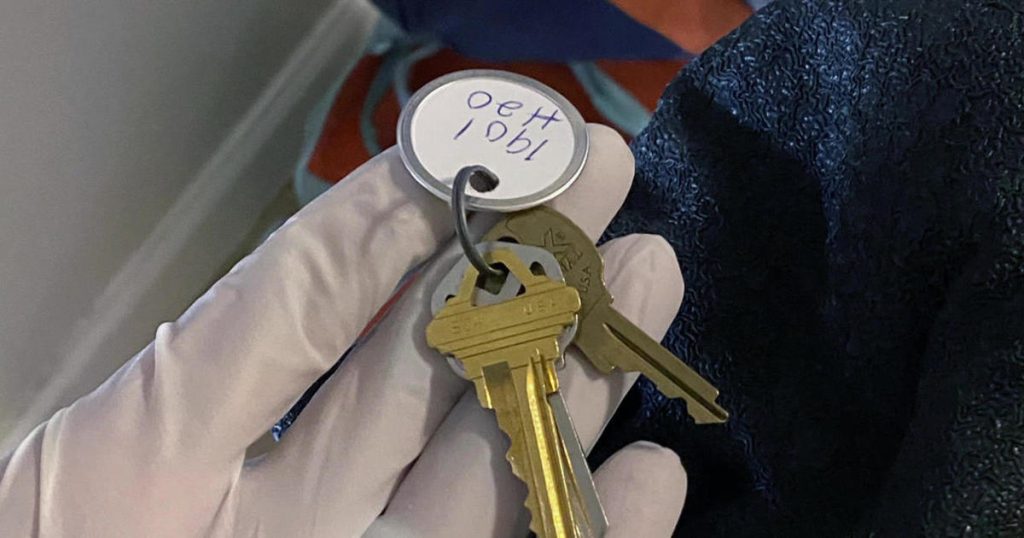In a recent CBS News segment, Martha Teichner tells the story of Julie Blow, a 62-year-old Army veteran who had been reduced to living in a tent on the streets of Houston due to a series of unfortunate events, including serious health issues and a fall that cost her the sight in one eye. However, thanks to the city’s innovative approach to solving homelessness, Blow now has an apartment, brand-new furniture donated by a local retailer, and a TV. The 320-sq.-ft. studio is a luxury for her compared to the tent she had been living in, and she describes feeling as happy as a teenager with her new living situation.
Houston’s success in reducing homelessness has been attributed to its implementation of a concept called “Housing First” in 2012. This approach involves spending money on getting the unhoused into their own apartments, subsidizing their rent, and providing the services needed to stabilize their lives. Since adopting this model, homelessness in the greater Houston area has decreased by 63%, and more than 30,000 people have been housed. Houston’s Coalition for the Homeless, led by Kelly Young, believes that their success could serve as a model for the rest of the nation to follow.
Mandy Chapman Semple, who played a key role in Houston’s success story, emphasizes the importance of focusing on housing as the key to addressing homelessness. Instead of just adding more shelter beds and outreach workers, Houston prioritized getting individuals into permanent housing first and then providing the necessary services to address complex issues like mental health, addiction, and financial stability. By coordinating efforts through a single umbrella organization, The Way Home, Houston was able to bring together various agencies and streamline the process of housing homeless individuals.
In addition to improving coordination among agencies, Houston also utilized available resources, including relatively affordable apartments and approximately $100 million in COVID aid, to support homeless relief efforts. By dismantling homeless encampments only after housing had been secured for all occupants, Houston showed a commitment to providing stable housing before addressing other issues. The city’s message is that to truly solve homelessness, cities must prioritize providing homes rather than simply managing the problem.
Overall, Houston’s success in reducing homelessness is seen as a significant achievement that can serve as a playbook for other cities facing similar challenges. By demonstrating that a coordinated, housing-first approach can be effective in addressing homelessness, Houston has paved the way for other cities to implement similar strategies. The success stories of individuals like Julie Blow show the transformative impact that stable housing can have on people experiencing homelessness.


